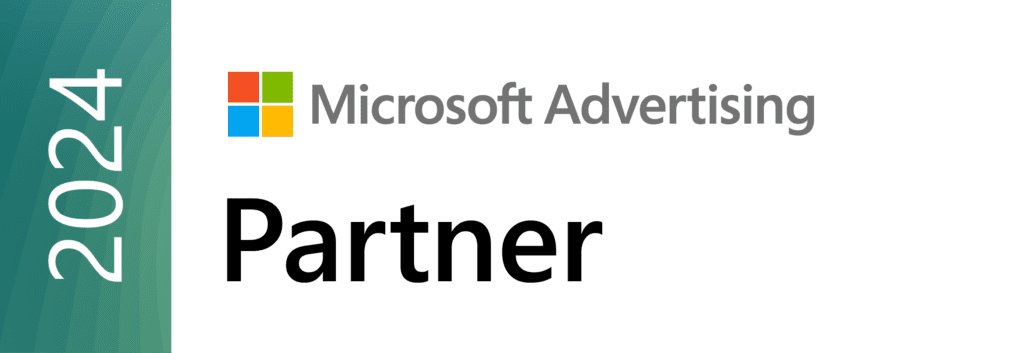There are so many options within Google Ads when it comes to bidding strategies, how do you know which is best for your campaigns? Maintain control and do the hard work yourself by choosing manual CPC OR select one of Google’s automated bidding strategies? We’ll provide the know-how on both and let you make a well-informed decision!
Manual Bidding
This setting allows you to have the most control over your keyword bids, as it is the only option that allows you to bid differently on individual keywords. This is generally the bidding strategy if you recently launched your campaign, if you’re concerned about giving Google too much control over your bids, if you’re running SKAGs (Single Keyword Ad Groups, not recommended, but that’s another blog post), or if you have a lot of free time.
*WARNING* Manual Bidding Downsides Ahead:
- Manual Bidding requires a significant time commitment; to review performance and make optimizations. Be sure you have a system in place to monitor and report on your bid management updates regularly.
- Selecting the option “Help increase conversions with Enhanced CPC” means you give Google the ability to override your manual bids and increase your bid however much they want if they think it will result in a conversion. Doesn’t sound very manual, does it?
In addition to the two notes above, the greatest disadvantage to manual bidding is that you are basing optimization solely on the search terms. It takes the person, and his or her online behavior, out of the picture and treats all searches as equal. With automated bidding, you can leverage other signals based on the individual user’s behaviors.
Now I’ve probably led you to believe in order to save time and acquire better results, automated bidding is the answer. Right? Not so fast. Giving Google control over automated bidding means they control both the bid market and the prices we pay for bids. Where’s the competitive advantage and control in this scenario?
If you choose automated bidding, you’re giving up more than just control. You lose the ability to understand your ideal customer. When you give up the manual controls, you don’t spend as much time identifying the trends that help you understand how users behave.
Which scenario offers more value?
- Campaign conversions increase by 20% because we turned on the Maximize Conversions bidding strategy.
-OR-
- Campaign conversions increase by 20% because over the last 30 days we noticed that women between 25 and 34 were more likely to convert so we increased bids to this demographic by 15% to show ads more often and drive more conversions.
Automated Smart Bidding
(Definition: Smart bidding is a category of automated bid strategies that uses machine learning to optimize for conversions in real-time.)
On the other hand, let’s say that your competitors are using smart bidding strategies and you aren’t. You could be telling Google everyone who searches that term is valuable to you, while your competitors are saying the people that search that term and have a higher conversion-intent are more valuable. This could mean that Google bids more aggressively for your competitors. Guess what that means? Your bids may be high enough to get those lower-intent searches, but your competitors may end up with the higher-intent users based on historical data you don’t have access to as a manual bidder.
There are several reasons to use automated bidding, and a couple reasons why you may choose to avoid the practice. The decision is ultimately yours, nonetheless, we’ve put together a couple of points on three smart bidding strategies for conversions:
- Maximize Conversions:
- Google’s fully automated solution means you cannot set limits or goals, and Google’s priority will not factor in CPA or CPC. If you decide to test it out, watch closely and only test campaigns with a limited budget. This forces the algorithm to focus on the least expensive conversion. Do not run with shared budgets.
- Target CPA:
- In the first weeks, you may experience lower performance due to the “learning” period. When setting your target CPA goals, you should not set them as your end goal. You should choose a reasonable goal based on current performance and slowly adjust down over time. It’s also best if you are able to set your budget to 2X to 5X your target.
- Target ROAS:
- Similar to Target CPA, there’s a learning curve, a need to set your goals and adjust over time. In addition, you’ll need to acquire a high volume of purchases or conversions per day from a campaign for it to optimize well, otherwise you should focus on conversion bid strategies.
Before you test any smart bidding strategies that are based on driving conversions, you should be sure of the following:
- You have at least 15 conversions (but 20-30 is best) in the last 30 days. If you are using ROAS, it is recommended that you are driving at least 10 purchases a day from your campaigns.
- Under: Settings -> Additional Settings -> Conversions, Select the conversions you want to optimize toward.
- You will likely see CPCs rise when you start testing bid strategies for conversions. Don’t be alarmed, you should care more about conversion rates and conversion volumes improving. You may also see impression share decrease. Again, you are prioritizing higher intent customers so removing yourself from lower quality search results is not a negative.
- Keep in mind your conversion windows and time lag, so you know how much time you need to give your bid strategy test before you can understand the impact of your changes.
I’m Confused. Where Should I Begin?
Everyone and every campaign will be different. What works for one will not always work for the other. As you start looking into bidding strategies, you will need go in with an open mind and a firm understanding of your goals and key performance indicators. Your key performance indicators will help you decide what smart bidding option is best for you. Remember, it’s always a good idea to run a Campaign Experiment to A/B test between manual vs smart bidding.
Bonus: Some tips and best practices for running successful Campaign Experiments are on their way! Keep an eye out for them in future blog posts.









